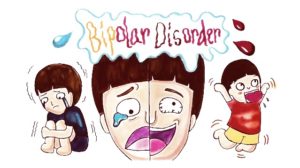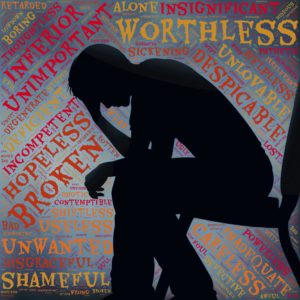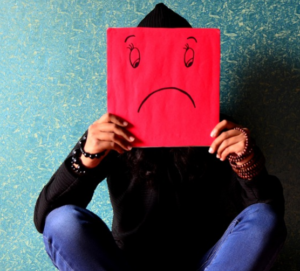We can cure so many disease with the strong mind or prevent the diseases with proper training of mind.
Child Psychology
#Child Psychology #wellness #growth #good concentration #healthy life style
We all know that exercise and nutrition are very important components of a healthy lifestyle, but an equally important aspect of overall wellness is a person’s emotional grounding. The mind has a truly powerful impact on the rest of our body in terms of our motivations, enthusiasm, likes and dislikes, and ultimately, our decision-making about how we want to live.
Stress
Stress: We’ve all felt it.Some facts about stress:
1. Forty-three percent of all adults suffer adverse health effects from stress.
2. Seventy-five percent to 90% of all doctor’s office visits are for stress-related ailments and complaints.
3. Stress can play a part in problems such as headaches, high blood pressure, heart problems, diabetes, skin conditions, asthma, arthritis, depression, and anxiety.
Reducing your stress levels can not only make you feel better right now, but may also protect your health long-term.
Trauma
Trauma can be caused by an overwhelmingly negative event that causes a lasting impact on the victim’s mental and emotional stability. While many sources of trauma are physically violent in nature, others are psychological. Some common sources of trauma include:
• Rape
• Domestic violence
• Natural disasters
• Severe illness or injury
• The death of a loved one
• Witnessing an act of violence
Mental Health
Mental Health , Improves the Quality of #Life
When we are free of #depression, #anxiety, #excessive stress and worry, #addictions, and other #psychological problems, we are more able to live our lives to the fullest.
Mental health strengthens and supports our ability to:
1. have healthy relationships
2. make good life choices
3. maintain physical health and well-being
4. handle the natural ups and downs of life
5. discover and grow toward our potential
Mental Health Treatment Reduces Medical Costs:
Many research studies have shown that when people receive appropriate mental health care, their use of medical services declines. For example, one study of people with anxiety disorders showed that after psychological treatment, the number of medical visits decreased by 90%, laboratory costs decreased by 50%, and overall treatment costs dropped by 35%.
Internet /Screen Addiction

Addiction ,not only confined to #smoking (tobacco), #alcohol, or illegal drugs. In this digital age, we are seeing different types of addictions in children and adolescents: the Internet, #gambling, #pornography, #exercise, #shopping, food, and #caffeine, to name a few
When a behavior becomes an addiction, it always has some negative consequences, which at times may not be noticed immediately. Negative consequences may include:
1. Failing in school,
2. Difficulties with family and friends,
3. Getting into legal trouble, (dealing drugs, stealing) and
4. Problems with their physical or emotional health.
The addicted child or adolescent is so caught up in their own behaviors that it is difficult for them to see how their behavior impacts those around them.
Today we only discuss about the internet/screen(mobile, T.V, Tabs, laptop, etc.. ) addiction:
#Internet/Screen #Addiction
Internet/screen Addiction refers to excessive use of the Internet/screen, so much so that it interferes with everyday life and decision making ability. Definitions also include the inability to cut back on internet usage, preoccupation with on-line activities.
Those who use the Internet/screen for more than 20 hours a week, every day, or for online gaming, are at higher risk .
Some symptoms of Internet addiction include:
1. Sacrificing sleep for time online
2. Losing track of time while on the Internet or using screen
3. Becoming agitated, depressed, irritable or angry when Internet time is interrupted or if the Internet can’t be accessed;
4. Sacrificing homework or chores; preferring time on the Internet rather than social time with family or friends;
5. Not abiding by Internet usage time limits;
6. Sneaking online when no one is around; forming new relationships with people that have been met on the Internet;
7. Loses interest in other activities.
Bipolar Disorder

#Bipolardisorder, formerly called manic #depression, is a #mentalhealth condition that causes extreme #moodswings that include emotional highs (mania or hypomania) and lows (depression).
When you become depressed, you may feel sad or hopeless and lose interest or pleasure in most activities. When your mood shifts to mania or hypomania (less extreme than mania), you may feel euphoric, full of energy or unusually irritable. These mood swings can affect sleep, energy, activity, judgment, behavior and the ability to think clearly.
Left untreated, bipolar disorder can result in serious problems that affect every area of your life, such as:
1. Problems related to drug and alcohol use
2. Suicide or suicide attempts
3. Legal or financial problems
4. Damaged relationships
5. Poor work or school performance
Do not ignore your mental health.
Depression


Most people experience periods of depression off and on throughout life. We all have days when we feel “blue” or “down,” and these distressing times usually pass. Also, the death of someone close can involve feelings, called bereavement, that are similar to symptoms of depression.
Major Depressive Disorder is another matter, and it usually requires psychological treatment. Characteristic of this disorder is at least one Major Depressive Episode .
A Major Depressive Episode has the following characteristic symptoms:
• Depressed mood. Note, however, that children and adolescents tend to show signs of irritability rather than depressed mood.
• Anhedonia; i.e., a lack of interest in usually enjoyable things
• Weight loss or loss of appetite (although some individuals overeat because of depression)
• Trouble sleeping
•Psychomotor Changes: Retardation (e.g., slowed speech, thinking, or movement) Agitation (e.g., inability to sit still; pacing)
• Fatigue, or lack of energy (e.g., staying in bed most of the day)
• Feelings of extreme worthlessness or guilt
• Trouble concentrating
•Thoughts of death, or feeling suicidal
Do not ignore these symptoms.
Therapies & its effects
How counselor and therapies help you to solve the problems ,to help you to achieve your goals:

